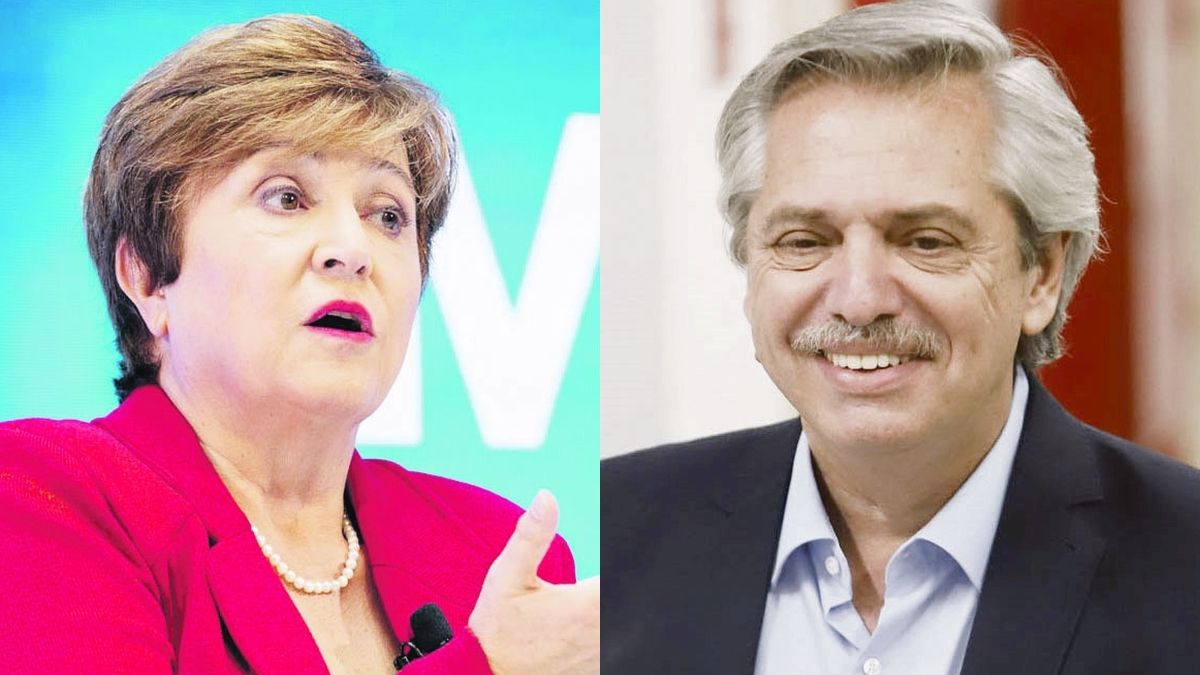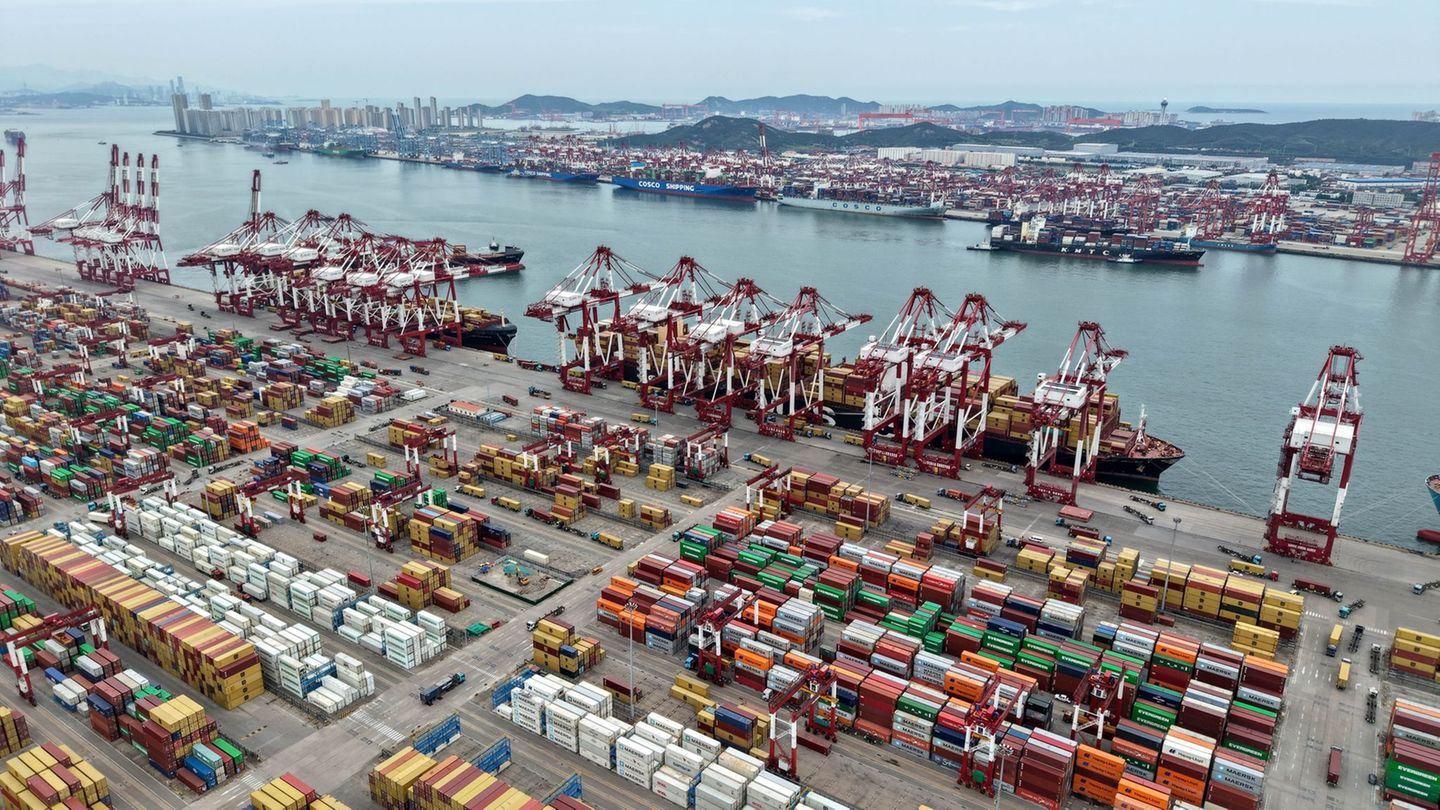Nobody who spoke had a better experience than what we have observed, because we have never been in a situation with so many overlaps. At that point they come up against the fact that any rebellious idea collides with the fact that nothing can be done to change things, as they are given in the international financial system. But they do not dominate the joint functioning of globalization.
It was necessary to operate a gradual mediation between two extremes. Those who wanted to “kick the board” and the “vernacular team of the IMF”. He had to keep his distance in the face of an assembler protest. We did not see any Robespierre to accompany him in failure, nor Mao or Lenin who triumphed. We will have the Bolsonaresque right goofing off with us for a while, but no room was given to it. The international financial system has its own inertia and immanent movements, even the democratic framework is already adapted to the structure of the financial system. It was illusory that Argentina could change it radically, and reorganize the world system. -Are we unaware that collateral damage is not an issue for the dynamics of multilateral credit organizations?-
a wicked legacy
Let us remember that the situation is the result of the catastrophic years of macri, marked by corruption and the degradation of institutions that contributed to the humiliation and ruin of Argentina and its citizens. We now know that the trade unionists were persecuted and imprisoned by a judicial Gestapo. A former vice president and several former executive branch officials were jailed without trial, businessmen were extorted and lost their businesses. The political persecution was obsessive with the contribution of an indecent sector of the Judiciary, where all the cases fell on the court of the extinct judge, with restrained hegemonic media and defenders associated with the regime.
Let’s change puzzled. It went from being a government of incompetents to becoming a cheating administration that managed to introduce institutional changes and shameful businesses simultaneously, at an unprecedented speed. Since 2016, the most important transfer of resources in Argentine history has been carried out. Registered salaries went from being the first in Latin America to being the last. GDP per capita fell 11% in 4 years according to Sturzenegger, but in dollars it fell 40%. Free medicine was taken from the elderly and laptops from children. As a result of those years, the poverty rate went from 25% to 40%, shattering all hope of a decent life for citizens. The real objective was to leave a country colonized by the IMF, mired in poverty and permanent dependency.
Between a rock and a hard place, defending sovereign decisions
In this understanding, the Government has reached the best possible agreement principle, after the brutal blackmail that the Macri administration subjected us to with the IMF. In short, it will not be an Extended Facilities Agreement, but a 30-month program, of the Stand By type, a thousand times better than the one signed by Macri, Dujovne, Sturzenegger. The government controls the main problem facing the economy, a more than probable default accumulated by around US$20 billion, which the gang of scoundrels had compromised.
There are no adjustment policies, the recovery of the economy continues, although a moderation in the fiscal deficit and monetary expansion was proposed for the current year. An allowable deficit of 2.5% in 2022; 1.9% in 2023 and 0.9% in 2024. We emphasize the “fiscal deficit”, because in order to target it, the tax administration will be strengthened, attacking on the income side (reduction of evasion and money laundering). It’s time to get into those two crucial issues. Remember that if there are US$400 billion outside the country, it is because part of the public debt was used to finance some “unholy” external savings.
We said that in terms of monetary policy, there will be a gradual reduction in assistance to the Treasury in 2022, 1% is proposed, in 2023 0.6% and in 2024 around zero. In the next two and a half years, there will be a “roll over” of maturities, which applies to a convergent normalization. The IMF will also refund what was paid for amortization of capital in the last two years.
As we anticipated a year ago, that the usual IMF conditions that harmed retirees would not exist, nor structural or labor reforms, nor privatizations of public companies, nor abrupt devaluations. Nothing that the standard recipe usually supports. Something that went unnoticed, but very important, is that incentives will be given to the export sectors. There must be a promotional policy consistent with a generalized development strategy in the industrial sector. The promotion of manufacturing exports must be carried out within the framework of a development policy. The formation of a greater capacity to import is necessary to overcome the recurrent external bottleneck, and must be supported by dynamic exports and intensive use of resources through direct investments and loans; granting facilities for its operation at a time that coincides with great international liquidity. But export growth absolutely needs to be accompanied by sustained economic expansion. It is worth mentioning that the domestic market plays a crucial role in the growth of exports. There will also be financing from multilateral organizations for the equivalent of 0.9% of GDP, approximately US$4 billion.
The least convenient are the “positive interest rates” that discourage productive investment. It remains to be seen to what extent “positive”. 1% on inflation is not the same as 30% positive for Sandleris-Macri’s Leliq. If bank spreads become exorbitant on loans, the BCRA will have to step in to ease the burden. It is time for the financial sector to adjust its proverbial inefficiency financed by society as a whole since 1977. On the price side, price agreements are going to play a significant role in the sketch of the anti-inflationary fight. As usual, when they contracted the debt in 2018, officials knew that there would be reviews and disbursements. In fact, they stumbled over and over again in an almost humorous way. They changed the rules a few days after starting… With these disbursements, the program that Macri-Dujovne had agreed to will be canceled, and the remainder will be used to strengthen reserves.
The Government’s intention is to have all the agreements closed before the end of March, when payments of US$2.8 billion arrive.
conclusion
As we said in previous articles, “LE mieux est l’ennemi du bien”, “the best is the enemy of the good” (Voltaire). There is a logical trap known as the “Nirvana Fallacy”, which consists in rejecting an action or idea by comparing it to the best, to that so “better” that it is impossible. Let’s not listen to those who found the example of Greece in 2018, we are very far from the obscenity of Greece (since 2010), a country truly under Troika occupation. Remember that his finance minister – Yanis Varoufakis – did not have access to his own ministry’s data and was accused of treason for trying to obtain it.
If someone wants to produce something new in economic policy, they have to explain a concrete strategy and a tactical plan for what they are proposing, not to mention that they need the social support of the masses. The great problem of almost all the disruptive quixotes is that they lacked a synchronous plan to reorganize the Argentine economy, after repudiating the debt with the IMF. If someone could take that step it would be a real event, the rest, as we said repeatedly, would have been to jump into the void.
Professor of Postgraduate UBA and Masters in private universities. Master in International Economic Policy, Doctor in Political Science, author of 6 books. @PabloTigani
Source: Ambito
David William is a talented author who has made a name for himself in the world of writing. He is a professional author who writes on a wide range of topics, from general interest to opinion news. David is currently working as a writer at 24 hours worlds where he brings his unique perspective and in-depth research to his articles, making them both informative and engaging.




